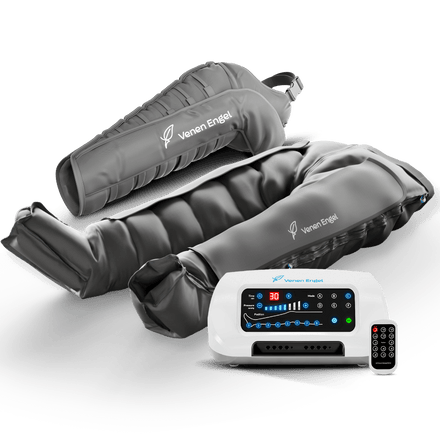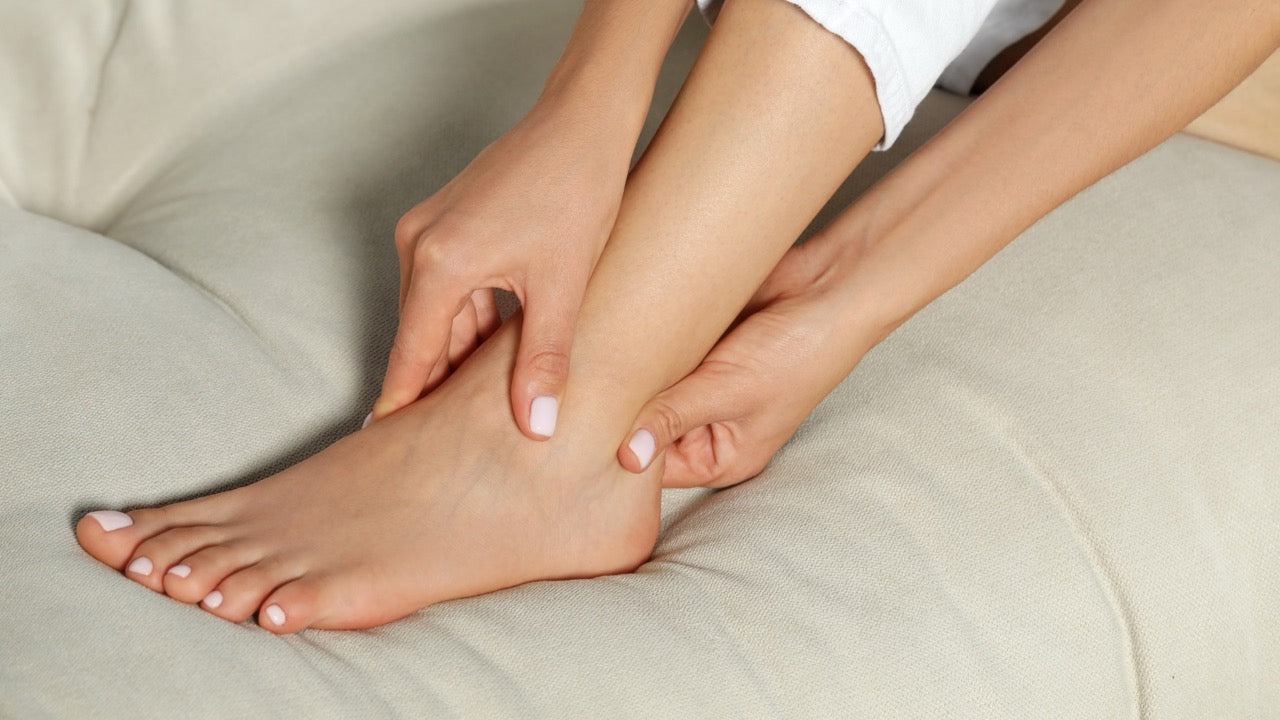
Eat a balanced diet
Reduce your salt intake: Have you ever wondered why you have particularly swollen legs after a high-salt dinner such as pizza or fast food? Salt can exacerbate fluid retention. Try to enrich your diet with less salty foods. Instead of chips and salty snacks, reach for fresh, unprocessed foods to reduce swelling.
Eat potassium-rich foods: You may have noticed that your swelling is not going down despite eating a healthy diet. Potassium-rich foods such as bananas and spinach can help your body eliminate excess water and reduce swelling. These small changes in your diet can make a big difference.Drink enough water: Do you find it hard to drink enough water, especially when you're busy? It may seem counterintuitive, but adequate hydration can actually help reduce water retention. Set small goals, such as always having a water bottle within reach, to remind yourself of your daily water intake.
Regular exerciseMake regular exercise a priority: The thought of additional physical activity can be overwhelming, especially if you already have a busy schedule. However, regular exercise is crucial for blood circulation. Even a short walk in the evening or a few minutes of light exercise can help drain fluids from your legs and improve symptoms.
Elevate your legs: If you sit at a desk all day, you may be familiar with the feeling of heavy, swollen legs. A simple trick to counteract this is to elevate your legs during your breaks. Elevate your legs for 15 to 20 minutes to relieve swelling and promote blood flow.
Use compression stockingsUse compression socks: You may be familiar with the situation: your legs feel heavy and tired after a long day. Compression stockings can help. They exert pressure, thereby supporting the function of the venous valves and helping to reduce swelling. They can be particularly helpful when travelling long distances or on stressful days.
Choose the right size: Make sure that the compression stockings fit well and are not too tight. It is important that they fit perfectly to achieve the best possible effect. Therefore, take precise measurements and refer to the manufacturer's instructions to find the right size. Your doctor or pharmacist can also help you to choose the right size and compression strength.
Compression massage
Use compression massagers: After a busy day, it is often difficult to find time for additional treatments. If you want to relax at home, schedule regular sessions with your Vein Angel. It applies gentle pressure to your legs and supports lymph flow, which can help you feel better faster. It can help alleviate your symptoms and give you a sense of relief and comfort.
Medical support
Get your symptoms checked: If you regularly struggle with water retention and the usual tips don't help, it's important to see your doctor. He or she can help you identify the exact cause and find suitable treatment options.
Discuss alternatives: If you are taking medication or hormonal contraceptives that may be contributing to water retention, talk to your doctor about possible alternatives. Sometimes a change of medication or another treatment option can be helpful.












